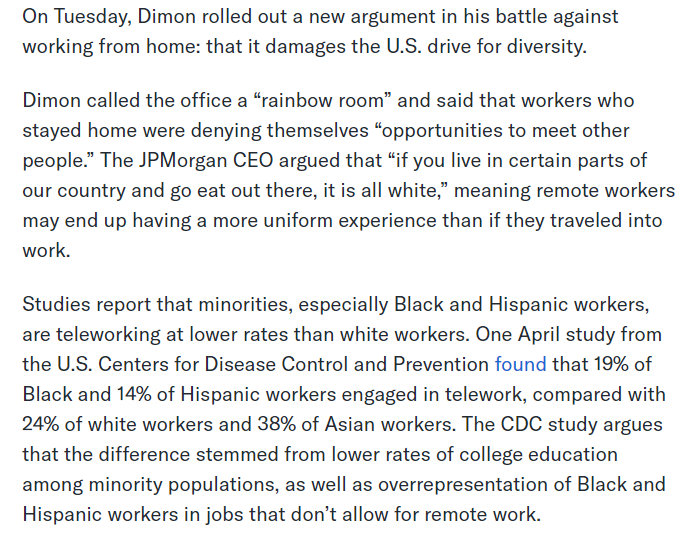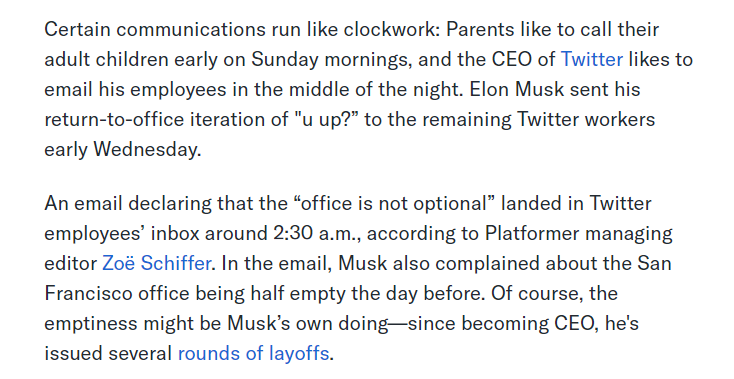These 5 Companies Issued Back to Office Mandates: Are You Next?
The COVID-19 pandemic dramatically reshaped our work landscape, but now we’re witnessing a significant shift back to traditional office settings. Major corporations are requiring that their employees come back to the office to work, and it’s causing a stir.
As we talk more about back to office mandates, we’ll discuss 5 of the largest companies requiring return to office, instead of work from home.
1. Walmart
Walmart dropped a bombshell in May that had remote workers clutching their laptops. They announced a mandatory relocation for most of their remote workforce to the corporate office in Bentonville, Arkansas. The timeline started in August 2024 and goes until January 2025.
Employees face a challenging decision — relocate or potentially end their employment with the company. The mandate has led to immediate resignations from some employees, while others are grappling with the logistical challenges of relocation. These challenges include uprooting families, potential career disruptions for partners, and rearranging childcare arrangements.
Walmart’s new 350-acre campus boasts impressive amenities, including diverse dining options, a hotel, and a fitness center, but the question remains whether these facilities justify the disruption to employees’ lives.
Interestingly, this mandate represents a significant shift from Walmart’s previous stance. Just a few years prior, Walmart’s global CTO had endorsed remote work as “the new normal,” highlighting the rapid evolution of corporate policies in response to changing circumstances.

2. Amazon
Amazon has also joined the back to office movement, mandating a full five-day return to the office beginning January 2, 2025. This decision marks the end of their hybrid work model.
CEO Andy Jassy emphasizes the importance of in-person collaboration, arguing it’s essential for maintaining Amazon’s innovative culture. Jassy believes that face-to-face interactions facilitate learning, strengthen company culture, and enhance collaboration and innovation.
This decision has been met with mixed reactions from employees. Many have grown accustomed to the flexibility of remote work and are reluctant to give up this arrangement.
There are concerns about the potential consequences of this mandate, including:
- Decreased employee morale and job satisfaction
- Possible loss of talent to companies offering more flexible work arrangements
- Challenges in recruiting new employees who prioritize work-life balance
Amazon’s decision represents a significant gamble on the value of in-person work. The success or failure of this policy could have far-reaching implications for the company and the tech industry as a whole.
3. JPMorgan
JPMorgan Chase, a leader in the banking industry, has been advocating for a return to office since 2021. CEO Jamie Dimon has been particularly vocal about this issue, famously referring to remote work as “management by Hollywood Squares.”

The bank’s approach involves a combination of full-time office presence and hybrid schedules, depending on specific roles and responsibilities, but the overall trend is clearly toward increased in-office presence.
Dimon argues that in-person work is crucial for mentoring, fostering innovation, and maintaining the bank’s corporate culture. He’s particularly concerned about the impact of remote work on younger employees, suggesting it could impede their professional development.
This stance raises questions about employee retention and satisfaction. In an industry known for its competitive recruitment, this return to office policy could impact JPMorgan’s ability to attract and retain top talent.
4. Disney
The entertainment giant Disney has also implemented a back to office mandate. CEO Bob Iger announced a four-day in-office requirement beginning March 1, 2024.
Iger’s rationale centers on the belief that the “energy and creativity” fostered by in-person collaboration cannot be replicated in a remote environment. This decision is part of Iger’s broader strategy to reshape Disney’s operations and address the challenges facing the entertainment industry.
The mandate has sparked debate both within and outside the company. Some supporters argue that creative industries like entertainment benefit more from in-person collaboration, but critics point out that technology has made remote creative work not only possible but often more efficient.
5. X (Twitter)
When Elon Musk acquired Twitter (now X), he swiftly implemented a strict back to office policy. Musk’s approach was direct and uncompromising, stating in an email to employees that “office is not optional.”
This hard-line stance led to significant employee pushback and a wave of resignations. The situation at X serves as a cautionary tale about the importance of how such RTO policies are implemented and communicated.
Musk’s approach at X represents perhaps the most extreme example of back to office mandates we’ve seen. It underscores the potential risks of abrupt policy changes, especially when dealing with a workforce accustomed to the flexibility of remote work.
Why Companies Are Forcing Employees Back to the Office
The push for employees to return to the office is driven by several factors, some based on tangible business needs and others on long-held beliefs about workplace dynamics. Let’s talk about the reasons behind this trend:
- Collaboration and Innovation: Many executives believe that in-person interactions foster greater creativity and problem-solving.
- Corporate Culture: There’s a concern that remote work may dilute company culture. Physical presence is viewed as crucial for new employees to absorb the company’s values and working methods.
- Productivity and Oversight: Some leaders worry that remote work may lead to decreased productivity or make it harder to monitor employee performance.
- Training and Mentorship: Companies argue that in-person work is essential for the professional development of younger employees through face-to-face mentoring and skill transfer.
- Real Estate Utilization: Many companies have significant investments in office spaces and want to justify these expenses.
It’s important to understand that while these are common justifications for back to office mandates, they are not universally accepted. Many argue that a lot of these goals can be achieved in remote or hybrid settings with the right strategies and technologies. The effectiveness of these mandates remains a topic of ongoing debate and study in the business world.
As companies navigate this transition, they must carefully weigh these potential benefits against the risk of employee dissatisfaction and potential talent loss. The most successful approaches are likely to be those that find a balance between organizational needs and employee preferences — allowing employees to feel comfortable and happy with their workplace.
Back to Office Mandate: FAQs
Why are companies pushing for a return to office?
Companies have many reasons for wanting employees back in the office, including fostering collaboration, maintaining company culture, and increasing productivity.
Some executives believe that face-to-face interactions lead to more innovation and better problem-solving. But others believe that these benefits aren’t guaranteed and may not outweigh the flexibility and work-life balance offered by remote work.
Can employees refuse to return to the office?
The ability to refuse a return-to-office mandate largely depends on employment contracts and local labor laws. In many cases, employers have the right to change work locations if it’s deemed reasonable.
Refusing to comply could potentially lead to termination. Employees with concerns should discuss them with their HR department, as some employers may be willing to make accommodations.
How are employees responding to these mandates?
Employee responses have been mixed. Some welcome the return to office, having missed the social aspects of in-person work. Others are resistant, valuing the flexibility of remote work. Many are seeking compromises, such as hybrid models. There’s also a significant number of employees seeking new job opportunities at companies with more flexible work arrangements.
Will these return to office mandates become the norm?
It’s difficult to predict with certainty. While some major companies are pushing for full-time office work, others are embracing permanent remote or hybrid models. The long-term trend will likely depend on the success of these early adopters, evolving employee preferences, and the ongoing development of remote work technologies.
How can companies smooth the transition back to office?
Clear communication is key. Companies should explain the reasoning behind the change, provide ample notice, and be open to employee feedback. Offering flexibility where possible can help ease the transition.
This might include hybrid models, flexible hours, or gradual returns to office. Companies should also address practical concerns about commuting, childcare, and work-life balance.
What are the potential long-term impacts of back to office mandates on the job market?
Back to office mandates could have significant long-term effects on the job market. They may lead to increased employee turnover as workers seek out more flexible arrangements.
This could result in a talent divide between companies offering remote work and those requiring in-office presence. Additionally, these mandates might influence where people choose to live, potentially affecting real estate markets in both urban and suburban areas.
Conclusion
The corporate world is currently engaged in a significant experiment with return-to-office policies. From Walmart’s relocation demands to Amazon’s five-day mandate, major companies are betting on the value of in-person work.
As we navigate this evolving landscape, flexibility and open communication will be crucial when it comes to back to office mandates.
Companies need to listen to their employees’ concerns and preferences, while employees need to voice their thoughts constructively. Services offered by ARC Relocation can be important in helping you, your employer, and your family handle these challenges.
The goal should not be simply to return to pre-pandemic norms, but to create work environments where people can thrive and perform at their best, wherever that may be. This might mean in an office, at home, or some combination of the two.

